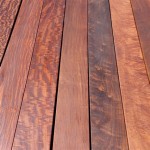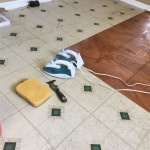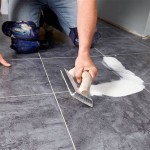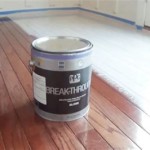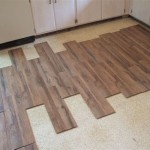Bamboo Flooring: An Eco-Friendly Alternative
Bamboo flooring has emerged as a popular eco-friendly alternative to traditional hardwood floors. Derived from the rapidly growing bamboo plant, it offers several advantages, making it an ideal choice for homeowners seeking sustainable and durable flooring options.
Environmental Sustainability
Bamboo is a highly renewable resource that can be harvested within just a few years. Unlike trees, which take decades to mature, bamboo culms can be harvested without damaging the root system, allowing for sustainable forest management. Additionally, bamboo plants absorb carbon dioxide, contributing to a cleaner environment.
Durability and Longevity
Despite its fast growth rate, bamboo is surprisingly durable. It is harder than most hardwoods, including oak and maple, making it resistant to scratches, dents, and wear. Bamboo flooring is also moisture-resistant, preventing warping and damage caused by humidity fluctuations.
Versatile Aesthetics
Bamboo flooring comes in various colors and styles to complement any décor. Natural bamboo has a warm, golden hue, while carbonized bamboo exhibits darker brown tones. It can be crafted into planks with different textures, including flat, vertical, and stranded. This versatility allows you to create a wide range of looks, from modern to traditional.
Health Benefits
Bamboo flooring has antimicrobial properties that inhibit the growth of bacteria and mold. It also releases negative ions into the air, which have been shown to improve indoor air quality and reduce stress levels. Additionally, bamboo is a hypoallergenic material, making it a suitable choice for individuals with allergies or asthma.
Easy Maintenance
Bamboo flooring is relatively easy to maintain. Regular sweeping and vacuuming are sufficient for keeping it clean. For deeper cleaning, you can use a mild detergent diluted in water and a microfiber mop. Avoid using harsh chemicals or abrasive cleaners that could damage the finish.
Considerations
While bamboo flooring offers numerous advantages, it's essential to consider the following points:
- Price: Bamboo flooring can be more expensive than traditional hardwood floors.
- Hardness: Bamboo can be scratched by sharp objects, although it is generally more durable than hardwoods.
- Moisture Resistance: While bamboo flooring is moisture-resistant, it is not waterproof and should not be installed in areas with excessive moisture.
Conclusion
Bamboo flooring is an eco-friendly alternative to traditional hardwood floors that offers durability, versatility, health benefits, and ease of maintenance. Its sustainability and versatility make it an excellent choice for homeowners seeking a durable, stylish, and environmentally conscious flooring solution.

6 Eco Friendly Flooring Options For Any Home

Bamboo Flooring Look Into A Sensible Environmentally Friendly Alternative To Hardwood Wood Guide As New Trend And Easy

Bamboo Flooring A Sustainable And Stylish Alternative To Hardwood Moss Fog

The Top 12 Eco Friendly Flooring Options For 2024 Danforth Carpet Connection

What Are The Best Eco Friendly Flooring Options America

4 Green Flooring Options For A More Sustainable Home

High Quality Bamboo Flooring Eco Friendly Floor Options

Green Flooring Options Surface Design Solutions

Sustainable Flooring Non Toxic Durable Affordable

The Best Bamboo Poles For Flooring
See Also

